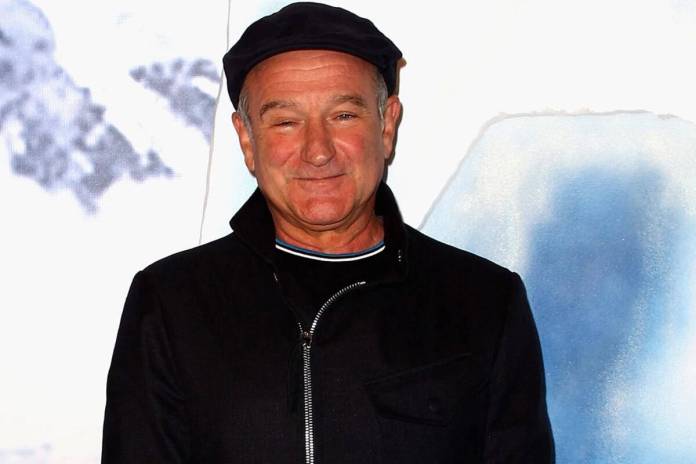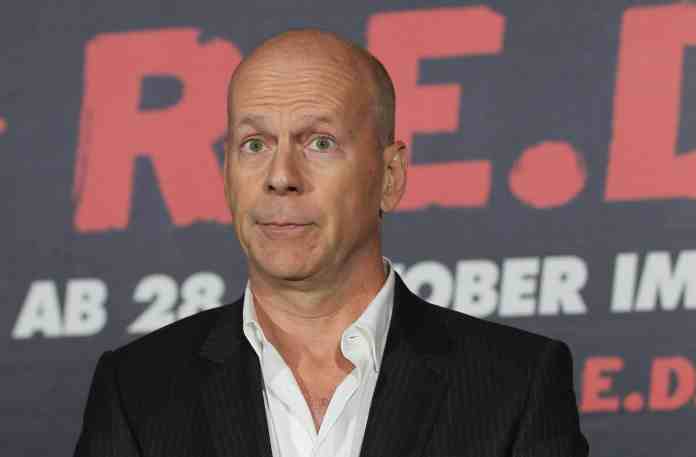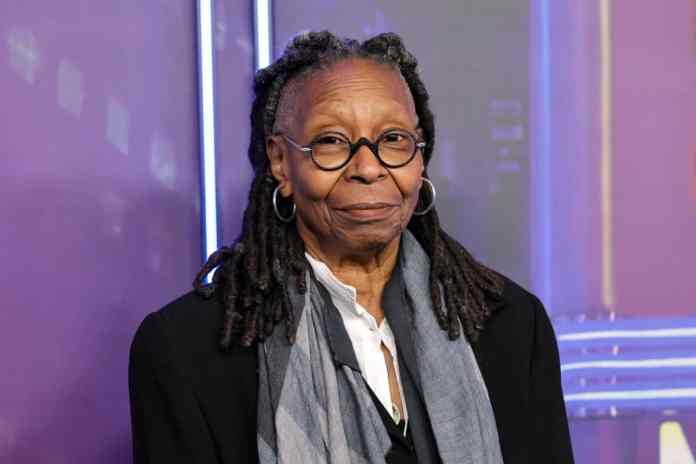
Typecasting is in Hollywood’s DNA from day one. It’s the tendency to put actors in one kind of role, whether it’s the goofy sidekick, the heartless bad guy, or the sensitive nurse who never gets a storyline of her own. When an actor commits a role to memory, the business likes to say, “Great, now do it again perpetually.” And yet now and then, someone shatters that cage, playing a role nobody ever thought they could and leaving people speechless. These career shifts don’t astound fans alone; they occasionally redefine entire careers. Let’s look at 17 of the most surprising and rewarding moments actors broke typecasting, counting down to the most shocking transformation of all.

17. Robert Pattinson
For years, Robert Pattinson was stuck in the Twilight shadow. To the millions who watched the franchise, he was forever the brooding, sparkly vampire Edward Cullen. Critics wrote him off as a teen heartthrob with only one note. But once the franchise concluded, Pattinson changed the trajectory of his career in a completely new direction. He picked offbeat indie fare such as Good Time and The Lighthouse, where he embraced dirty, complicated characters who bore no relationship to teen romance. The biggest risk? Bruce Wayne in The Batman. His dark, subtle performance stilled skeptics once and for all, demonstrating he had the chops to be more than a franchise pin-up.

16. Daniel Radcliffe
Breaking free from Harry Potter’s shadow was always destined to be a hard sell for Daniel Radcliffe. Rather than playing cautiously, he went out of his way to take the strangest parts he could find. He’s farted corpse in Swiss Army Man, sprouted horns in Horns, and even appeared in a Broadway production of Equus, which shocked audiences back then. What might have been a career made on magic has instead turned into one of perpetual reinvention. Radcliffe’s demonstrated that he’ll do nearly anything, and that willingness has left him one of the most unlikely-to-type actors of his time.

15. Elijah Wood
Having borne the burden of Middle-earth as Frodo in The Lord of the Rings, Elijah Wood might have stayed in the fantasy department for good. Rather, he switched to lower-profile, weirder things. He gave a devastating performance in Eternal Sunshine of the Spotless Mind, dipped into the dark side of Sin City, and even began producing indie horror movies. By zagging when people thought he was going to zig, Wood has fashioned a career that’s more erratic than blockbuster-oriented, demonstrating that there is life after starring in one of fantasy’s most iconic roles.

14. Ralph Fiennes
Ralph Fiennes has traditionally been the epitome of gravitas. With credits such as the tortured lover in The English Patient and the sinister Lord Voldemort in Harry Potter, viewers had come to know him as a somber, dramatic lead. So, his appearance in Wes Anderson’s The Grand Budapest Hotel was quite a surprise. Playing the flamboyant concierge Gustave H, Fiennes was hilarious, nimble on his feet, and utterly charming. The performance reminded people that even the most severe actors can excel at comedy, and it opened up Fiennes’ career in new ways that few anticipated.

13. Robin Williams
Robin Williams made a living on breakneck comedy, adored for his frenetic antics in Mrs. Doubtfire and Aladdin. But in the early 2000s, he stunned the crowd by turning dark. In One Hour Photo and Insomnia, he portrayed characters so horrifically unsettling that it unsettled fans who had only ever known him as a bringer of happiness. Those performances guaranteed Williams possessed a dramatic side equal to his comedic acuity, solidifying him as one of the greatest chameleon performers of his generation.

12. Matthew McConaughey
For several years, Matthew McConaughey was the face of romantic comedies, synonymous with relaxed demeanor and topless beach sequences. And then came what everyone called the “McConaissance.” With movies such as Dallas Buyers Club, Mud, and HBO’s True Detective, McConaughey rebranded as a dramatic heavyweight. His Oscar-winning performance as Ron Woodroof demonstrated that he had more depth than his rom-com persona. It was perhaps one of the most astounding reinventions in contemporary Hollywood.

11. Jonah Hill
Jonah Hill began his career making raunchy teen comedies such as Superbad, in which he played the hilarious, foul-mouthed best friend. Few thought he’d evolve into a straight-up actor, but that’s exactly what happened with his Oscar-nominated turns in Moneyball and The Wolf of Wall Street. He also caught everyone off guard by making his directorial debut on the indie coming-of-age drama Mid90s, which was met with affection. Hill progressed from punchline to powerhouse, and it both shocked and made sense.

10. Bruce Willis
It’s difficult to remember now, but before Die Hard, Bruce Willis was not perceived as an action hero by any means. He was best known for light work on the TV show Moonlighting and romance roles. Casting Willis as John McClane was regarded as a risk, and it paid dividends in spades. His wise-cracking, vulnerable action hero redefined the action genre and cemented him as a household name. That transition from television charmer to action icon is one of the most cinematic typecasting breakouts in history.

9. Woody Harrelson
To most, Woody Harrelson was merely the charming Cheers bartender Woody. Then he startled viewers with his dark, brutal turn in Natural Born Killers. He continued to challenge himself, playing parts in films of every genre, from The People vs. Larry Flynt to Three Billboards Outside Ebbing, Missouri. With three Academy Award nominations and a crazily diverse resume, Harrelson is the living embodiment that sitcom typecasting can be broken with the correct roles.

8. Mary Tyler Moore
Mary Tyler Moore was America’s sweetheart, adored for her cheerful radiance on The Mary Tyler Moore Show. So her performance in Ordinary People was all the more remarkable. As a bereft, icy mother, she lost her wholesome TV image and performed worthy of an Oscar nomination. It was a reminder that actors who appear to be emblematic of one type of role can have depth unsuspected.

7. Bryan Cranston
Before Breaking Bad, Bryan Cranston was best recognized as the klutzy dad Hal on Malcolm in the Middle. So when he was announced for Walter White, many were skeptical. Could the goofy sitcom star actually pull off a merciless drug lord? The answer was an unequivocal yes. Cranston’s own work as Walter is currently ranked as one of the greatest in television history, and the mere contrast to his previous work made the change that much more powerful.

6. Jason Bateman
Jason Bateman spent decades typecast as the witty, sarcastic straight man in comedies such as Arrested Development. And then there was Ozark. Playing Marty Byrde, a financial planner who money-laundered for a cartel, Bateman revealed a darker, more nuanced side that few had previously witnessed. His work demonstrated that not only could he play heavy drama, but he also excelled at it, earning him a new level of respect as a dramatic leading man.

5. Steve Carell
Steve Carell established his career in cringe comedy, from Michael Scott at The Office to the hapless hero at The 40-Year-Old Virgin. But when he turned up in dramas such as Foxcatcher, The Big Short, and Beautiful Boy, fans were amazed at his intensity and restraint. Carell’s transformation demonstrated that the same abilities that made him humorous, timing, exposure, and emotional truthfulness, could make him heart-wrenching in drama.

4. Dave Bautista
When Dave Bautista initially transitioned from wrestling to acting, everyone expected he’d remain with muscle-bound action parts. His comedic timing in Guardians of the Galaxy only helped strengthen that notion. But Bautista had other designs. In movies like Blade Runner 2049, Dune, and Knock at the Cabin, he portrayed intelligent, measured performances that displayed unexpected range. Bautista is forging a singular path as one of the most serious ex-wrestlers-turned-actors currently working.

3. Daniel Craig
Daniel Craig was James Bond for more than a decade: stoic, suave, and deadly. Which is why his stint as Benoit Blanc in Knives Out was such a pleasant surprise. His flamboyant, witty detective, complete with a Southern accent, was the exact opposite of Bond’s cool threat. Audiences loved the switch, and Craig showed he was entirely capable of comedy and quirks.

2. Jeff Daniels
Jeff Daniels’s career was founded on dramatic, serious performances in movies such as Terms of Endearment. Therefore, his choice to appear in Dumb and Dumber was so surprising. His outrageous slapstick acting became iconic and demonstrated that he could perform at both ends of the acting spectrum. The surprise twist provided Daniels with one of the most iconic roles of his professional career.

1. Adam Sandler
For decades, Adam Sandler was the name most associated with goofy, lowbrow comedies that critics adored to despise. With almost forty Razzie nods, he appeared fated to be forever typecast. Then came Uncut Gems. His ballistic performance as Howard Ratner left critics and viewers aghast, collecting serious notice and demonstrating that he was capable of serious drama. Hustle follow-ups only reaffirmed the transformation. Sandler’s transition from the slapstick clown to the serious dramatic actor is perhaps the most astounding typecasting breakout ever.

Typecasting has to do with more than comedy versus drama or blockbuster versus indie; it frequently overlaps with race, gender, and body type. Most actors get stuck in stereotypes of ability rather than type. Mexican actor Cuauhtli Jiménez has complained of being constantly typecast as a criminal or trafficker, eagerly awaiting the opportunity to play to his full extent. Filmmakers such as Cristal Philbrick contend that Hollywood should overlook initial impressions and pay attention to what actors can actually deliver.

There are some promising changes. Shows such as Little Shop of Horrors and Legally Blonde have started casting against type, providing chances for actors from other races and body types for roles traditionally meant for other people. Nevertheless, progress is sporadic. Black and Latina women are still frequently waiting for the kind of multi-dimensional comedic or dramatic roles for which their white counterparts won awards.

Shattering typecasting takes guts, determination, and occasionally a friend who is willing to fight for you, much like Patrick Swayze famously did for Whoopi Goldberg to get her into her iconic part in Ghost. When it does happen, however, the payoff is nothing short of enchanting, altering not only our perception of the actor but occasionally the way we perceive entire genres.